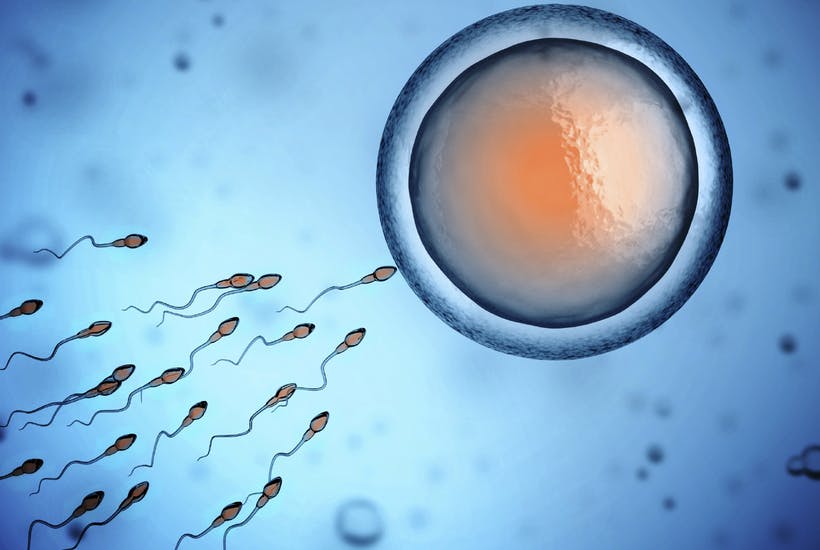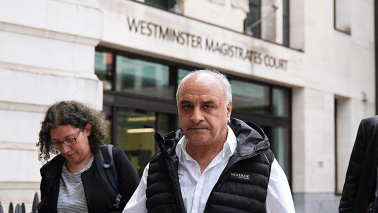I first became aware of the London Sperm Bank after seeing an advert on Instagram. ‘Help someone achieve their dream of a family. Become a sperm donor and get compensated up to £420 a month’. Why not get paid to do something that I was going to do anyway in my spare time? In the past, I’ve donated blood and have looked into giving bone marrow, so sperm donation just seemed like another form of biological socialism: from each according to his ability, to each according to her need. But I also felt I might be hedging an existential bet. If the name of the game is to multiply, then donating my DNA seemed like a rational genetic insurance policy.
The only thing we have in common is our knowledge of those little windowless cubicles with their sinks and wall-mounted TVs
The staff at the bank are all very professional and polite. But you are, fundamentally, masturbating on command in a central London basement. The deal was I’d turn up once a week for anywhere between six months to a year and it soon became a regular part of my weekly routine. Hop on a tube, walk into the clinic, grab the little plastic cup and off again I’d go.
The sperm bank has tried to encourage us donors to meet up for the occasional pub trip. I can’t quite bring myself to go. The only thing we have in common is our knowledge of those little windowless cubicles with their sinks and wall-mounted TVs.
Part of the gig is the so-called ‘pen sketch’, designed to give prospective parents a sense of who I am – or, really, a sense of who they might be giving birth to. The sketch is completely anonymous – a short history describing my family, my childhood, education, hobbies, personal achievements, and professional success. It’s hard to avoid writing something that sounds like an advert: ‘look at me, what a healthy, well-adjusted, and successful person I am. Who wouldn’t want a kid like me?’ A half-page summary is a difficult place to explain alcoholic parents and occasional bouts of anxiety and depression. I doubt it sells the product, either.
Only those with a sperm count in the top 5 per cent are asked to donate. It’s an arbitrary result based mainly on genetics, but I still felt a sense of pride in my medically-confirmed virility. With global sperm counts plummeting, I also felt a strange sense of duty. My donation will, apparently, be frozen for up to 55 years, which made the other part of the process particularly difficult: writing a letter to my future children.
At first, writing a ‘message of goodwill’ on no more than a page of A4 seemed like easy homework. Yet the longer it lingered near the bottom of my to-do list, the more I felt a kind of dread. I was being asked to offer my limited wisdom to an unknown number of as-yet-unborn children. Imagine if cryogenic sperm freezers had existed in 1945 and I’d been around to give a donation. How useful would my wartime advice be for a child born at the turn of the millennium?
A couple of weeks ago, I found myself on a plane locking eyes with a baby. There’s a small chance that, in a few years, I could see a baby in the street and it would be half me, half stranger. It might have my eyes, look a bit like me, even think like me. Would either of us realise? Would I be able to soothe my child if the parents couldn’t? I stopped staring at the baby.






Comments